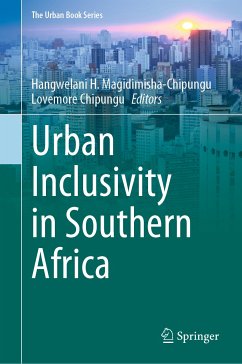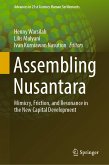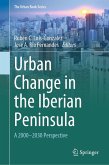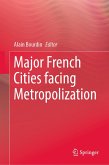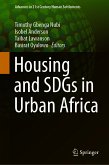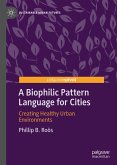This book's point of departure rests on the premises that dimensions of the mainstream inclusive city discourse fail to capture in detail vulnerable clusters of society (being women, children, and the aging), the minority clusters (i.e., the blind, the disabled), and migrants. In addition, it fails to recognize the increase of spatial inequality driven by racial and class differences-a factor that has seen an increase in community violence and protests. The focus on spatial inequality has, for a long time, blind-folded urban authorities to ignore exclusion arising out of the same environments created with a notion of creating inclusivity. Hence this book "collapses spatial walls" as it seeks to uncover the true perspectives of inclusivity in cities beyond spatial dimensions but within social realms. The depth of this book's enquiry rests on its critical investigation of Southern African cities' through historical epochs of apartheid and colonialism in the region.
Dieser Download kann aus rechtlichen Gründen nur mit Rechnungsadresse in A, B, BG, CY, CZ, D, DK, EW, E, FIN, F, GR, HR, H, IRL, I, LT, L, LR, M, NL, PL, P, R, S, SLO, SK ausgeliefert werden.

